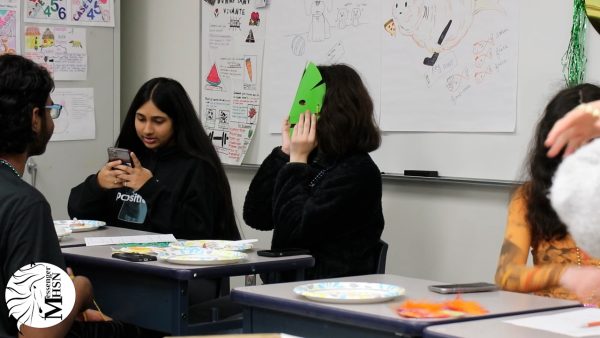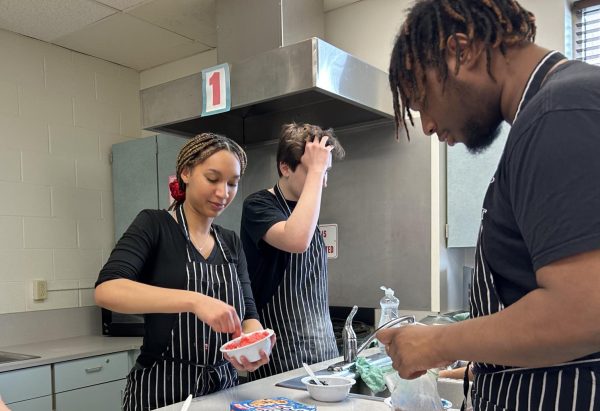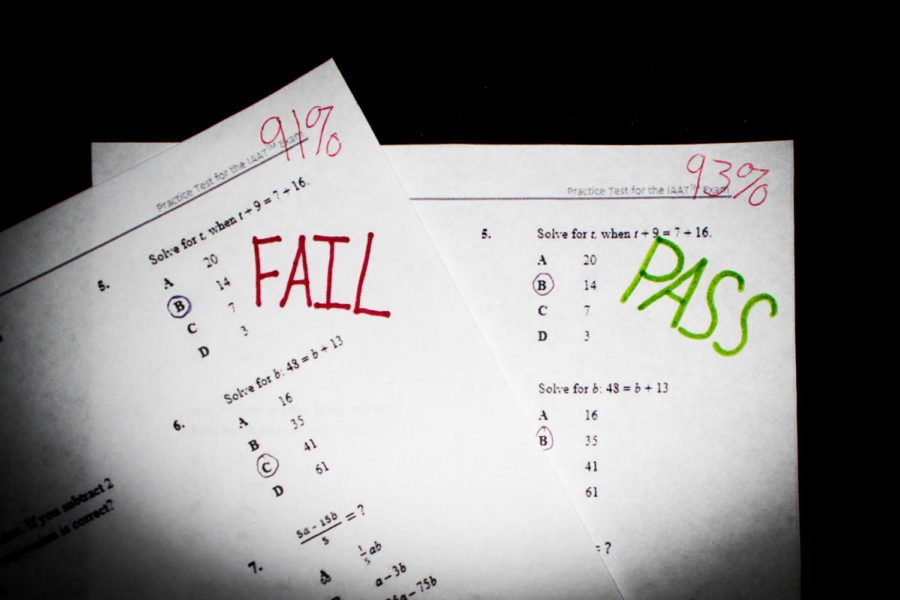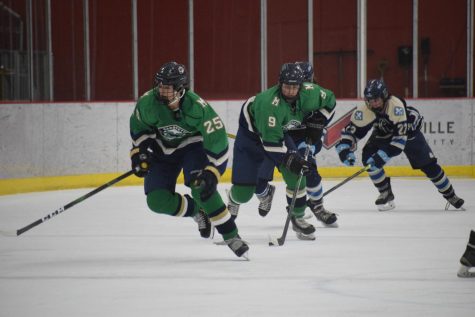Competitive Nature Between Classmates Grows
Media by Hannah Richard
Sriya Kosaraju, junior, studied hard to earn a perfect score on the ACT last December with one main motivator: to keep up with her Class of 2020.
“The pressure made me feel like I didn’t want to be behind,” Kosaraju said. “It made me feel a need to prove myself.”
Kosaraju knew many people that year who earned perfect scores on their ACT and she now recognizes that there is an aura of competition between students.
“Instead of being friends and having a laid back life in high school, people are seeing everyone as some kind of threat,” Kosaraju said. “I don’t think that’s a good thing.”
For her, the pressure to do as well as her peers spans much further than standardized testing. She mentioned that whenever a test is graded and handed back, she finds it difficult to not compare her grade to others. Kosaraju added that students who usually did not talk to her would compare their grades with hers.
Kosaraju is not alone in this feeling. She said many high school students often compare their success to others, leaving themselves dissatisfied with their own accomplishments.
Dr. Michael Decesare, professor of sociology at Merrimack College, said that competitiveness is taught at a young age.
“We learn as children the importance of individual success, of being ‘the best’,” Decesare said. “Those beliefs manifest themselves in behavior like comparing our performance with others and competing with our peers.”
While Decesare said this competitive nature is negative, he also recognizes arguments of others in support of it. These arguments center around how competition can motivate students to perform better academically by setting a goal for them to beat.
He added that some say the competition prepares students for life outside of school in the labor market, as the desire to outperform other students reflects the competition workers must face.
“From this perspective, the competition students experience throughout their years of schooling prepares them, in a sense, for later lives of labor in a capitalist economy,” Decesare said.
Ryan Bixby, chemistry teacher, sees competition in nearly every class and said students put too much emphasis on the small details of their grades.
“From a teacher’s point of view, little differences are irrelevant,” Bixby said. “But [students] place a big psychological value to those differences.”
Bixby added that most of these little differences stem from nuance rather than understanding big ideas. As a teacher, he does not place much emphasis on these nuances as they do not shape the quality of the student.
In Bixby’s eyes, students should challenge themselves rather than other students.
“If you are always comparing yourself to other people, that’s a recipe for disaster,” Bixby said.
Bixby said that the modern grading system places too much emphasis on the fine details of a student’s grade, and that a student’s grade should be based on overall understanding of main concepts and readiness for the next level.
“Viewing it that way would be much healthier than assigning these percentage values,” Bixby said. “At the end of the day, that’s what it’s about. Whether you can do it, and if you should move on in the process.”
Your donation will support the student journalists of Marquette High School. Your contribution will allow us to purchase equipment and cover our annual website hosting costs. You may become a PATRON by making a donation at one of these levels: White/$30, Green/$50, Blue/$100. Patron names will be published in the print newsmagazine, on the website and once per quarter on our social media accounts.

Austin Richard, junior, is the Events Editor for the Messenger. He plays flute and piccolo in Wind Ensemble, guitar in Jazz Band and also performs with...












